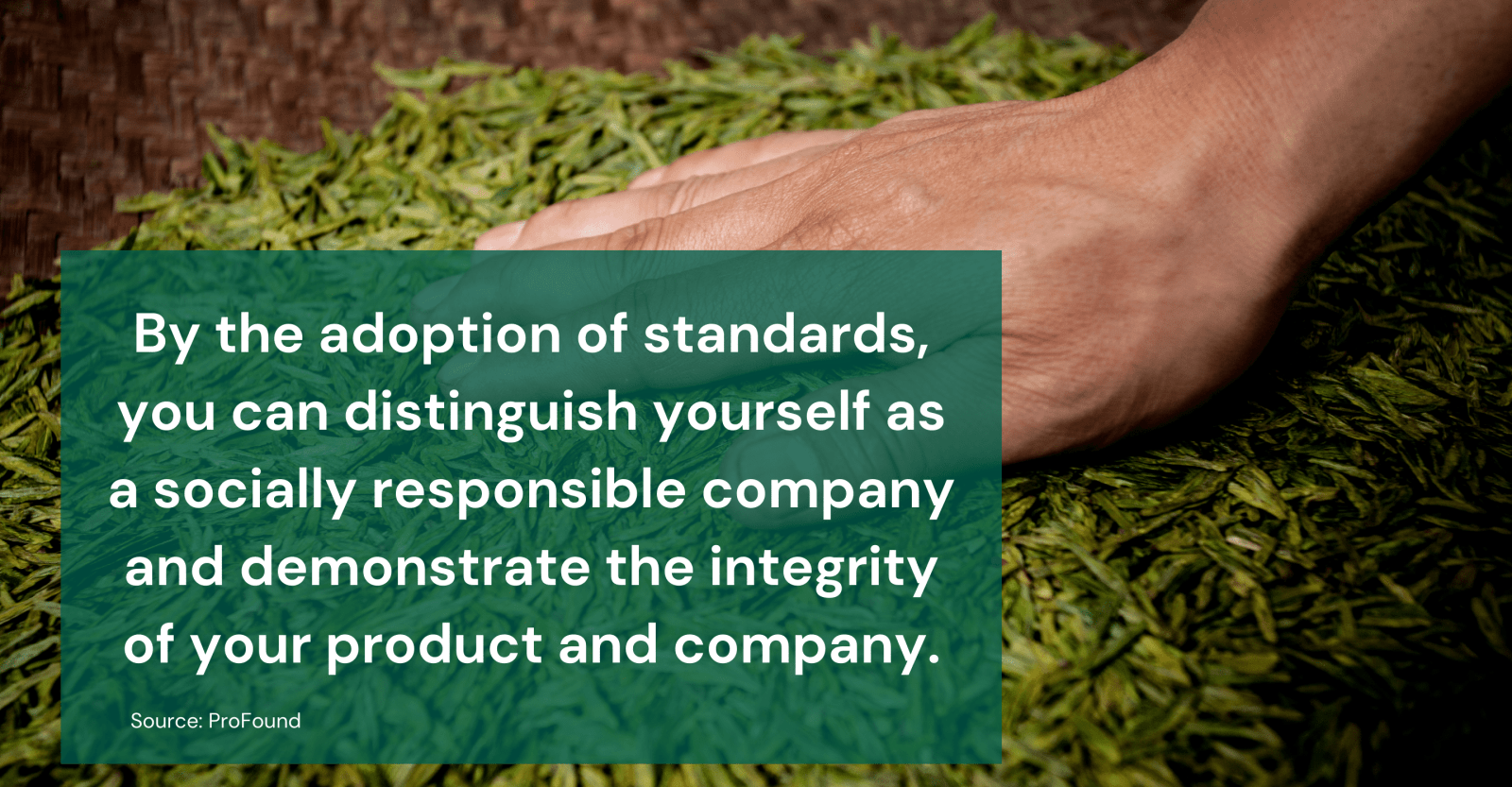As an exporter, you should choose a social certification standard that fits your company best. To determine which standard fits your needs you will need to determine your objectives and compare the different standards available to see which one helps you meet them. We have developed three important steps to guide you on this process.
Determine your needs and objectives
You should look for standards that help you achieve your objective and goal. Maybe you have a buyer that wants you to certify according to a specific standard before you can become a supplier. You can also use standards to enter a new market or distinguish yourself from your competition.
Guiding questions that might help you determine your needs and objectives:
- What do you want to obtain with a social certification?
- What problems do you have, that you expect this standard to solve?
- What do you expect to gain from having this certification?
- How can this standard help you achieve your goal?
You should also think of benefits that standards might offer your company, such as market access. By the adoption of standards, you can distinguish yourself as a socially responsible company and demonstrate the integrity of your product and company.
Another added value of social standards is that it gives you credibility because they are assessed by a third party and verified by an independent control body. This might help you strengthen your reputation towards buyers.
In general, certified products can claim a higher price, but this depends on the product, its quality, the social standard that you have and whether you can sell your product as certified. Also take into account that you will have to make investments to pass an audit.
Another benefit is improved traceability, you must have a satisfactory traceability system, which tracks and audits your supply chain. Buyers might be interested in this value.

Market demand and strategy
Having sufficient buyer demand for certified products and a strong relationship with your buyers is key for success. After you have defined your needs and objectives and to what extent a certification can help you meet those, you need to take look at the market and potential buyers to see if a specific standard is useful in this market.
Guiding questions for determining the market demand and your strategy:
- Is this certification used for your products, target market and segment?
- What kind of standards do your buyers refer to?
- What standards are common?
- How does this standard support your values and mission?
- What sales of certified products do you expect to achieve with this standard?
For mainstream products, it is more and more common to use social standards, but for niche markets it is different. Not all standards cover all products and ingredients. It is important to figure out which standards are common in your market, a good source of this is the market information on the website of CBI.
Study the requirement of specific standards
Once you have determined what the common standard or standards are for your products, look at the requirements. Guiding questions here include:
- Can you meet the requirements and, if not, can you make necessary changes?
- What investments (time, money, other sources) do you need to become certified, and stay certified?
- Are expected sales sufficient to offset your investments?
Would you like to know more?
You can read the full study here: https://www.cbi.eu/market-information/social-certifications
Or you can watch the webinar here for more information. In it, Solani Pandithasekera, the founding partner and CFO of Sri Lankan coconut exporter Serendipol provides tips based on her experience of getting and maintaining certification standards:
Questions?
Do you have questions about our trends and tips for social certification standards? Then don’t hesitate to get in touch with Jolanda van Hal (jvanhal@thisisprofound.com) or Lisanne Groothuis (lgroothuis@thisisprofound.com) via email.

